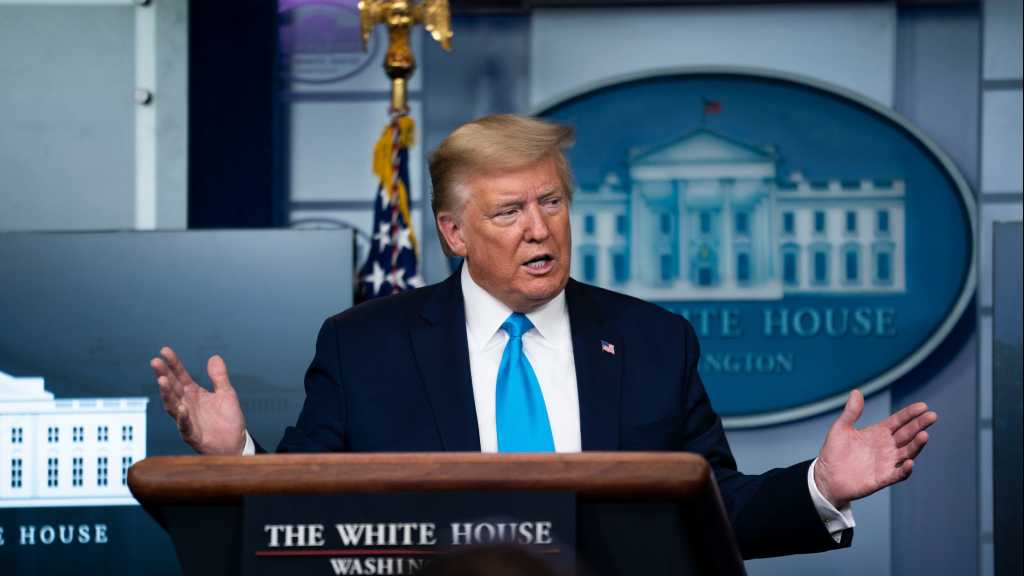America’s pretexts for Global "Intervention"

America's National Strategy of Global Intervention
Source: Information Clearinghouse, 18-10-2008
By William Pfaff
Paris - Last June the U.S. Department of Defense (War) unexpectedly issued a new version of its National Defense Strategy. It was unexpected because there will be a new administration in Washington in January which might be expected to issue a statement of its own ideas about military strategy.
Some in Washington speculated that 'Defense' Secretary Robert M. Gates, only recently named to that office, a man who gets along with Democrats as well as Republications, might be bidding to keep his job under a new administration.
The new statement lacks the Bush administration's unilateralism and triumphalism (as if there were anything left to be triumphal about), but it foresees a "Long War" of "promoting freedom, justice and human dignity by working to end tyranny, promote effective democracies and extend prosperity; and confronting the challenges of our time by leading a growing community of democracies."
All that is straight Bush doctrine, drawn from his second inaugural address and Condoleezza Rice's policy statement last summer predicting decades of a "new American realism" of "nation-building" to conquer "extremism." By now the "Long War," realistic or not, will have become orthodoxy for most of the Washington defense and strategic studies community.
The noteworthy thing about this National 'Defense' Strategy statement is that it says nothing directly about American national defense. It is a strategy for intervening in other countries, and preventing others from blocking or resisting American interventions.
It states the responsibilities of America's armed forces (summarizing the document's introduction) as follows:
- Conduct a global struggle against a violent extremist ideology that seeks to overturn the international system.
- Deal with the threats of rogue-nation quests for nuclear weapons.
- Confront the rising military power of other states.
These duties "[will require] the orchestration of national and international power over years or decades to come" to accomplish the following:
- Long-term innovative approaches to counter al-Qaeda's rejection of state sovereignty, violation of borders, and attempts to deny self-determination and human dignity.
- Deal "with the inability of many states to police themselves effectively or work with their neighbors to ensure regional security." Armed sub-national groups must be dealt with, "including but not limited to those inspired by violent extremism" which if left unchecked will threaten the stability and legitimacy of key states, and allow instability to spread "and threaten regions of interest to the United States, its allies and friends."
- Form local partnerships and creative approaches to deny extremists the opportunity to gain footholds in "ungoverned, under-governed, misgoverned, and contested areas" affecting local stability and regional stability.
- Counter Iran's pursuit of nuclear technology and enrichment capabilities, and deal with the ability of rogue states such as Iran and North Korea to threaten international order, sponsor terrorism, and disrupt fledgling democracies in Iraq and Afghanistan.
- Meet possible challenges from (a) "more powerful states [that] might actively seek to counter the United States in some or all domains of traditional warfare or to gain an advantage in developing capabilities that offset our own," as well as (b) nations that might "choose niche areas of military capability and competition in which they believe they can develop a strategic or operational advantage [even though] some of these potential competitors [may also be partners of the U.S. in] diplomatic, commercial or security efforts..."
- For the foreseeable future, "hedge against China's growing military modernization and the impact of its strategic choices on international security....The objective of this effort is to mitigate near-term challenges while preserving and enhancing U.S. national advantages over time."
- Recognize that Russia's [pre-Georgian crisis] "retreat from openness and democracy," "bullying of its neighbors," and "more active military stance... and signaled increase in reliance on nuclear weapons as a foundation for its security ...[are warnings of] a Russia exploring renewed influence" and a greater international role.
- Prevent prospective adversaries, especially non-state actors and their state sponsors, from adopting "anti-access technology and weaponry [that can] restrict our future freedom of action," and also from "making adversary use of traditional means of influence" such as by "manipulating global opinion using mass communications venues and exploiting international commitments and legal avenues."
- The global "commons [space, international waters, aerospace and cyberspace] must be secured and with them access to world markets and resources," using military capabilities and alliances and coalitions, participating in international security and economic institutions, and employing "diplomacy and soft power to shape the behavior of individual states and the international system, using force when necessary."
The principal preoccupation of the document is to protect American forces operating in foreign countries: to block measures by foreign states to "deny" American efforts to intervene in their countries, or to develop measures and technology to resist American intervention (or to send Americans to international criminal courts).
As for the United States itself, the document quotes the constitutional obligation of the government "to provide for the common defense," but says that today, after more than 230 years, the U.S. "shoulders additional responsibilities on behalf of the world,...a beacon of light for those in dark places." Yet the fear of those dark places that permeates the document compels the recommendation that American troops remain at home, where they will be safe from enemies and untrustworthy allies, and defend their own country.
Note: William Pfaff is the author of eight books on American foreign policy, international relations, and contemporary history, including books on utopian thought, romanticism and violence, nationalism, and the impact of the West on the non-Western world. His newspaper column, featured in The International Herald Tribune for more than a quarter-century, and his globally syndicated articles, have given him the widest international influence of any American commentator.
Source: Information Clearinghouse, 18-10-2008
By William Pfaff
Paris - Last June the U.S. Department of Defense (War) unexpectedly issued a new version of its National Defense Strategy. It was unexpected because there will be a new administration in Washington in January which might be expected to issue a statement of its own ideas about military strategy.
Some in Washington speculated that 'Defense' Secretary Robert M. Gates, only recently named to that office, a man who gets along with Democrats as well as Republications, might be bidding to keep his job under a new administration.
The new statement lacks the Bush administration's unilateralism and triumphalism (as if there were anything left to be triumphal about), but it foresees a "Long War" of "promoting freedom, justice and human dignity by working to end tyranny, promote effective democracies and extend prosperity; and confronting the challenges of our time by leading a growing community of democracies."
All that is straight Bush doctrine, drawn from his second inaugural address and Condoleezza Rice's policy statement last summer predicting decades of a "new American realism" of "nation-building" to conquer "extremism." By now the "Long War," realistic or not, will have become orthodoxy for most of the Washington defense and strategic studies community.
The noteworthy thing about this National 'Defense' Strategy statement is that it says nothing directly about American national defense. It is a strategy for intervening in other countries, and preventing others from blocking or resisting American interventions.
It states the responsibilities of America's armed forces (summarizing the document's introduction) as follows:
- Conduct a global struggle against a violent extremist ideology that seeks to overturn the international system.
- Deal with the threats of rogue-nation quests for nuclear weapons.
- Confront the rising military power of other states.
These duties "[will require] the orchestration of national and international power over years or decades to come" to accomplish the following:
- Long-term innovative approaches to counter al-Qaeda's rejection of state sovereignty, violation of borders, and attempts to deny self-determination and human dignity.
- Deal "with the inability of many states to police themselves effectively or work with their neighbors to ensure regional security." Armed sub-national groups must be dealt with, "including but not limited to those inspired by violent extremism" which if left unchecked will threaten the stability and legitimacy of key states, and allow instability to spread "and threaten regions of interest to the United States, its allies and friends."
- Form local partnerships and creative approaches to deny extremists the opportunity to gain footholds in "ungoverned, under-governed, misgoverned, and contested areas" affecting local stability and regional stability.
- Counter Iran's pursuit of nuclear technology and enrichment capabilities, and deal with the ability of rogue states such as Iran and North Korea to threaten international order, sponsor terrorism, and disrupt fledgling democracies in Iraq and Afghanistan.
- Meet possible challenges from (a) "more powerful states [that] might actively seek to counter the United States in some or all domains of traditional warfare or to gain an advantage in developing capabilities that offset our own," as well as (b) nations that might "choose niche areas of military capability and competition in which they believe they can develop a strategic or operational advantage [even though] some of these potential competitors [may also be partners of the U.S. in] diplomatic, commercial or security efforts..."
- For the foreseeable future, "hedge against China's growing military modernization and the impact of its strategic choices on international security....The objective of this effort is to mitigate near-term challenges while preserving and enhancing U.S. national advantages over time."
- Recognize that Russia's [pre-Georgian crisis] "retreat from openness and democracy," "bullying of its neighbors," and "more active military stance... and signaled increase in reliance on nuclear weapons as a foundation for its security ...[are warnings of] a Russia exploring renewed influence" and a greater international role.
- Prevent prospective adversaries, especially non-state actors and their state sponsors, from adopting "anti-access technology and weaponry [that can] restrict our future freedom of action," and also from "making adversary use of traditional means of influence" such as by "manipulating global opinion using mass communications venues and exploiting international commitments and legal avenues."
- The global "commons [space, international waters, aerospace and cyberspace] must be secured and with them access to world markets and resources," using military capabilities and alliances and coalitions, participating in international security and economic institutions, and employing "diplomacy and soft power to shape the behavior of individual states and the international system, using force when necessary."
The principal preoccupation of the document is to protect American forces operating in foreign countries: to block measures by foreign states to "deny" American efforts to intervene in their countries, or to develop measures and technology to resist American intervention (or to send Americans to international criminal courts).
As for the United States itself, the document quotes the constitutional obligation of the government "to provide for the common defense," but says that today, after more than 230 years, the U.S. "shoulders additional responsibilities on behalf of the world,...a beacon of light for those in dark places." Yet the fear of those dark places that permeates the document compels the recommendation that American troops remain at home, where they will be safe from enemies and untrustworthy allies, and defend their own country.
Note: William Pfaff is the author of eight books on American foreign policy, international relations, and contemporary history, including books on utopian thought, romanticism and violence, nationalism, and the impact of the West on the non-Western world. His newspaper column, featured in The International Herald Tribune for more than a quarter-century, and his globally syndicated articles, have given him the widest international influence of any American commentator.




